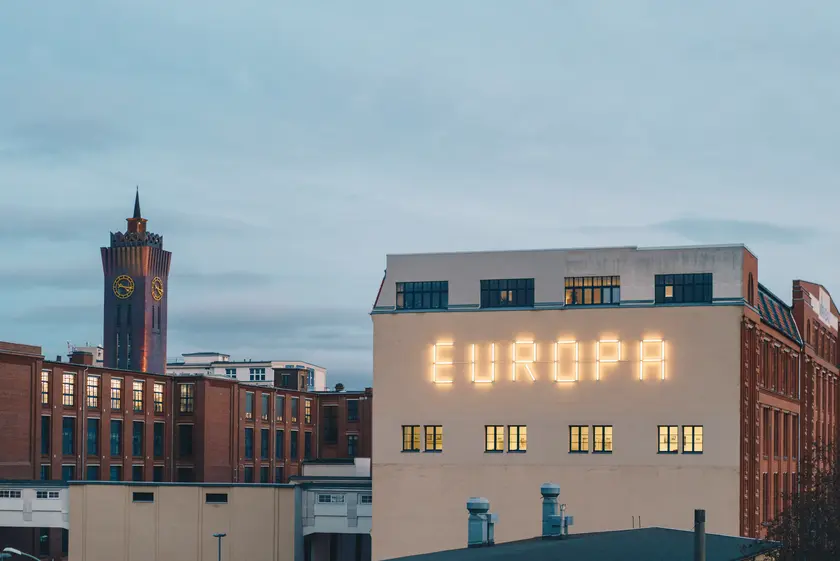The European Commission announced on Wednesday that Chemnitz in Germany and Nova Gorica in Slovenia have been named European Capitals of Culture (ECOC) in 2025.
Throughout the year, the two cities will host cultural events, exhibitions, and performances, highlighting the richness of our shared European cultures. The celebrations this year have an extra dimension, as 2025 marks the 40th anniversary of the ECOC initiative.
Chemnitz, with about 240,000 inhabitants, is located in south-eastern Germany and is known for its many industrial age buildings and monuments. In 1953 it was named Karl-Marx-Stadt by the former East German government in recognition of its industrial heritage.
Chemnitz’ history is also linked to its Jewish presence dating to the Middle Ages. In the late 19th century, a Jewish community was founded there with its own institutions which became involved in the city’s economic and cultural life. A splendid synagogue in neo-Romanesque stile was built in 1895.
With the rise of Nazism, the synagogue was burnt down during “Kristallnacht” in November 1938. During the war, a total of 2,000 local Jews were deported to the east where almost all of them perished. There are memorials in the city of the places from where the Jews were deported. The Days of Jewish Culture have been held annually in Chemnitz since 1991.
Nova Gorica is a small town in western Slovenia. The original town dates to the Middle Ages but the rest of the town was built from scratch according to modernist architecture after the second world war when the new border between Italy and former Yugoslavia was drawn.
Congratulating the two cities, Glenn Micallef, Commissioner for Intergenerational Fairness, Youth, Culture and Sport, said that he “look forward to a whole year of celebrations showcasing the diversity, identities and values of European cultures while highlighting what brings European citizens together in celebration of our diversity, identities and values”.
The inauguration of Chemnitz as ECOC 2025 will take place on 18 January. With the motto “See the Unseen”, the city aims to reinforce the role of civic society through community-driven cultural projects and build a network of “European makers of democracy”.
Nova Gorica will start its ECOC run on 8 February. The city intends to grow together with the bordering Italian city of Gorizia, becoming a “borderless European Capital of Culture”. It will also be an opportunity to explore, through cultural and artistic means, the concept of borders from multiple dimensions.
For more information about the programmes and activities in the two cities, click here.
The title of European Capital of Culture allows cities to boost their local and regional development through culture. It also expected to provide long-term cultural, economic, and social benefits for the selected cities and their surrounding regions, according to the Commission.
To be selected, the cities had to set up a cultural programme with a strong European dimension, promoting the active involvement of their city’s communities. The Commission has awarded the two 2025 European Capitals of Culture with the €1.5 million Melina Mercouri Prize, in recognition of the quality of their preparations for the year.
The Brussels Times

